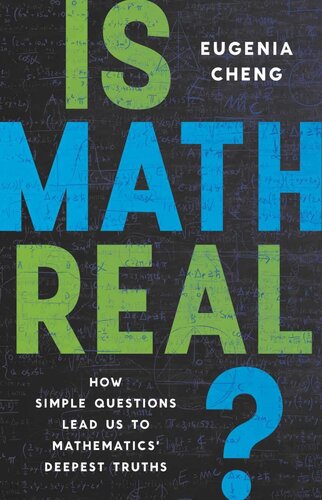

Most ebook files are in PDF format, so you can easily read them using various software such as Foxit Reader or directly on the Google Chrome browser.
Some ebook files are released by publishers in other formats such as .awz, .mobi, .epub, .fb2, etc. You may need to install specific software to read these formats on mobile/PC, such as Calibre.
Please read the tutorial at this link: https://ebookbell.com/faq
We offer FREE conversion to the popular formats you request; however, this may take some time. Therefore, right after payment, please email us, and we will try to provide the service as quickly as possible.
For some exceptional file formats or broken links (if any), please refrain from opening any disputes. Instead, email us first, and we will try to assist within a maximum of 6 hours.
EbookBell Team

4.1
20 reviews"Where does math come from? From a textbook? From rules? From deduction? From logic? Not really, Eugenia Cheng writes in Is Math Real?: it comes from curiosity, from instinctive human curiosity, "from people not being satisfied with answers and always wanting to understand more.
" And most importantly, she says, "it comes from questions": not from answering them, but from posing them. Nothing could seem more at odds from the way most of us were taught math: a rigid and autocratic model which taught us to follow specific steps to reach specific answers. Instead of encouraging a child who asks why 1+1 is 2, our methods of education force them to accept it. Instead of exploring why we multiply before we add, a textbook says, just to get on with the order of operations. Indeed, the point is usually just about getting the right answer, and those that are good at that, become "good at math" while those who question, are not. And that's terrible: These very same questions, as Cheng shows, aren't simply annoying questions coming from people who just don't "get it" and so can't do math. Rather, they are what drives mathematical research and push the boundaries in our understanding of all things. Legitimizing those questions, she invites everyone in, whether they think they are good at math or not. And by highlighting the development of mathematics outside Europe, Cheng shows that-western chauvinism notwithstanding--that math can be for anyone who wishes to do it, and how much we gain when anyone can"--